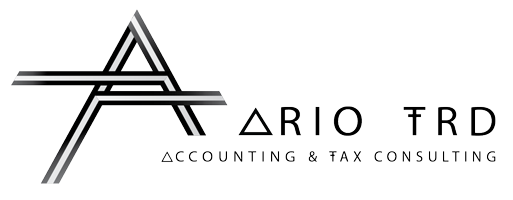Corporate Tax in Oman: Complete Guide 2025
Introduction
Oman has become one of the most attractive destinations for investors and entrepreneurs in the Middle East, thanks to its stable economy, business-friendly policies, and growing international trade opportunities. One of the most important aspects of doing business in Oman is understanding the corporate tax system. Knowing the rules, rates, and compliance procedures helps companies avoid penalties, stay compliant with Omani tax laws, and optimize their financial planning.
In this comprehensive guide, we will cover everything you need to know about corporate tax in Oman—from tax rates and exemptions to filing requirements and compliance strategies.
What is Corporate Tax in Oman?
Corporate tax is a direct tax imposed on the net income or profit of companies operating in Oman. Unlike some neighboring GCC countries, Oman has a well-structured corporate tax regime regulated by the Oman Tax Authority (OTA). The law requires both local and foreign companies earning income in Oman to file tax returns and pay applicable corporate tax. This ensures transparency and aligns Oman with international tax standards.
Corporate Tax Rates in Oman (2025)
Understanding tax rates is crucial for financial planning. Here are the current corporate tax rates in Oman:
– Standard Corporate Tax Rate: 15% on taxable income.
– Special Reduced Rate for Small Businesses: 3% (applies to Omani companies meeting specific conditions).
– Oil and Gas Companies: Taxed at a higher rate of 55%.
– Branches of Foreign Companies: Subject to the same standard corporate tax rate of 15%.
Who is Liable to Pay Corporate Tax in Oman?
Corporate tax applies to:
– Omani Companies (registered in Oman).
– Branches of Foreign Companies operating in Oman.
– Permanent Establishments (PEs) of foreign businesses.
– Joint ventures and partnerships recognized under Omani law.
Exemptions and Incentives
The Omani government provides several tax exemptions and incentives to promote investment:
– Free Zones: Companies enjoy tax holidays and exemptions.
– Agricultural and Fishing Projects: Exempt to encourage sustainable development.
– Education and Health Projects: May qualify for exemptions.
– Double Taxation Agreements (DTAs): Oman has signed agreements with multiple countries.
Tax Filing and Compliance Requirements
Every company in Oman must comply with strict tax filing procedures:
Filing Deadlines:
– Provisional Tax Return: Within 3 months from the end of the financial year.
– Final Tax Return: Within 6 months from the end of the financial year.
Documentation Required:
– Audited financial statements.
– Tax computations.
– Supporting documents for exemptions or deductions.
Penalties for Non-Compliance:
– Late Filing Penalties (up to OMR 2,000).
– Underpayment Penalties (1% per month on unpaid tax).
– Legal Actions in severe cases.
Deductible Expenses in Oman Corporate Tax
Businesses in Oman are allowed to deduct certain expenses to reduce their taxable income, including:
– Salaries and wages.
– Rent and utilities.
– Depreciation of assets.
– Bad debts (subject to conditions).
– Donations to approved charitable organizations.
However, personal expenses, fines, and penalties are not deductible.
Corporate Tax Planning in Oman
Strategic tax planning can help companies optimize their tax liability. Some effective strategies include:
– Utilizing tax exemptions available in free zones.
– Proper documentation of deductible expenses.
– Aligning the company’s financial year with tax filing requirements.
– Leveraging double taxation treaties to avoid paying tax twice.
Working with a professional tax advisor ensures compliance and efficiency.
Impact of Corporate Tax on Foreign Investors
Oman’s transparent tax system gives confidence to foreign investors. While the 15% tax rate is competitive compared to many countries, the real advantage lies in the incentives and free zones. Investors benefit from:
– No personal income tax.
– Access to tax holidays.
– Simplified tax filing procedures.
This makes Oman a strong hub for regional and international businesses.
Excise Tax in Oman | Complete Guide 2025
Frequently Asked Questions (FAQ)
What is the corporate tax rate in Oman?
The standard corporate tax rate is 15%, while small businesses may qualify for a 3% rate. Oil and gas companies are taxed at 55%.
Are foreign companies taxed in Oman?
Yes. Any income earned in Oman by foreign companies or branches is subject to corporate tax.
Do companies in free zones pay tax?
Most free zone companies enjoy tax holidays and exemptions for a specific period, depending on the zone’s regulations.
When is the deadline for filing corporate tax returns?
Companies must file provisional tax returns within 3 months and final tax returns within 6 months of the end of their financial year.
Does Oman have double taxation agreements?
Yes, Oman has signed multiple DTAs with other countries to prevent double taxation.
Conclusion
Corporate tax in Oman is relatively straightforward compared to many countries. With a standard tax rate of 15%, exemptions for small businesses, and multiple incentives for foreign investors, Oman has positioned itself as a competitive business hub in the GCC region.
Understanding the tax system and complying with regulations is essential for smooth operations. Whether you are a local entrepreneur or a multinational company, working with a professional tax consultant in Oman ensures compliance and effective tax planning.
If you need expert assistance with corporate tax filing, compliance, or planning in Oman, the team at ARIOTax is here to help.




